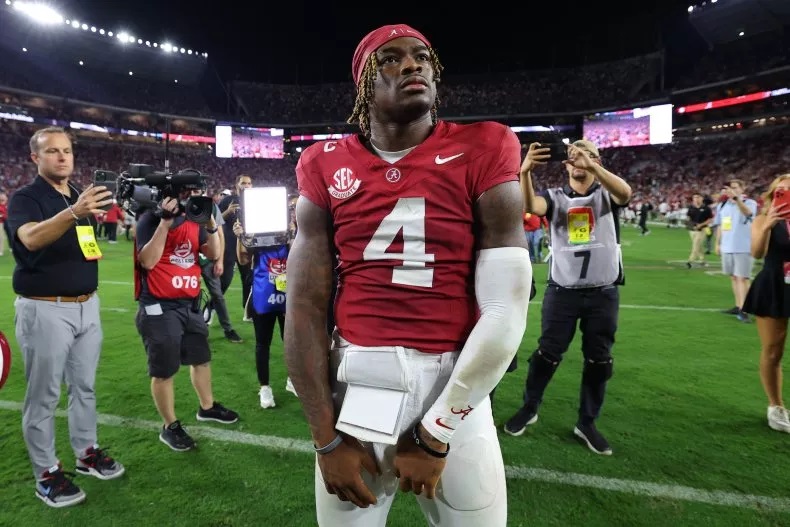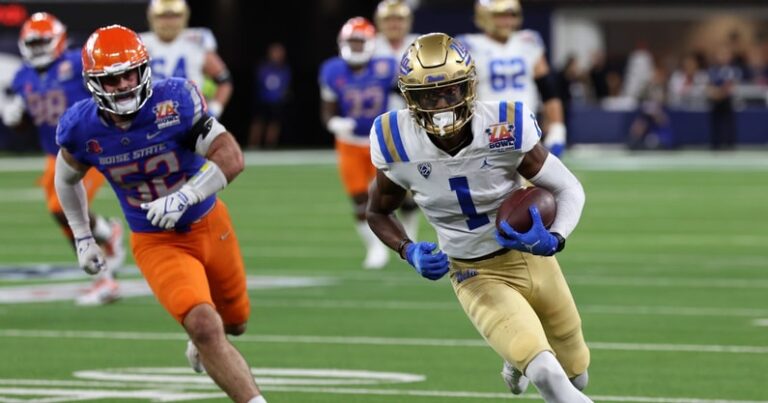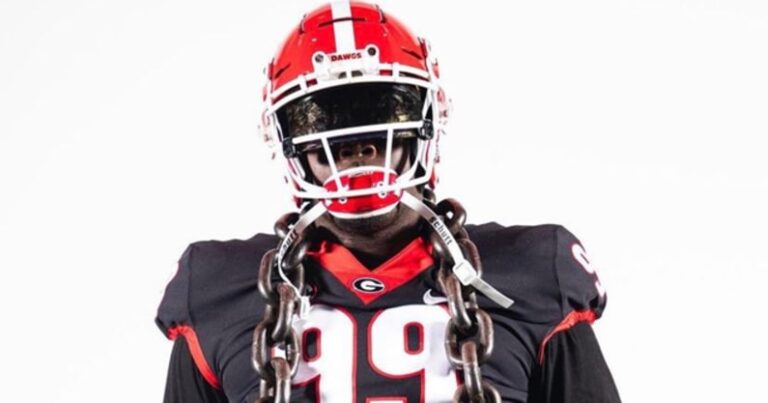
Alabama quarterback Jalen Milroe’s recent decision to voice his frustration and potential departure from the program has shaken the college football world. In a candid interview, Milroe expressed his belief that his presence was no longer needed at Alabama, citing the difficulties he had been experiencing under the current coaching regime. His decision to speak out reflects the growing mental health awareness in college athletics, a space where players are increasingly pushing for a balance between high performance and personal well-being.
Milroe’s journey with the Crimson Tide has been marked by both promise and turmoil. As Alabama’s starting quarterback, he has shown flashes of brilliance, with impressive stats including over 2,600 passing yards and 20 rushing touchdowns. However, his tenure has also been a rollercoaster, with inconsistent performances and moments of criticism from fans and analysts alike. The quarterback’s frustration seems to stem from a lack of support and trust within the system, something that he feels stifles his individual playing style. This discontent has led him to question whether he can continue under these circumstances.
The pressure on Milroe has only intensified with Alabama’s recent struggles and the looming possibility of a transfer. Despite the ups and downs of his season, some coaches, like Kalen DeBoer, have highlighted Milroe’s exceptional talent when he is fully rested, praising his potential to be one of the top quarterbacks in the country. Still, the mental and emotional toll of competing at such a high level, compounded by internal team tensions, may lead Milroe to seek a fresh start elsewhere.
His situation is part of a broader conversation about the challenges college athletes face, particularly in high-stakes environments like Alabama. The dialogue sparked by Milroe’s comments may prompt a reevaluation of how programs balance competitive excellence with the emotional health of their athletes. Whether Milroe stays or leaves, his decision signals a critical moment in college sports where player voices are gaining more prominence. This could pave the way for changes not only at Alabama but across the NCAA.

